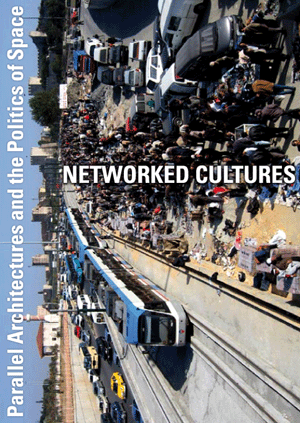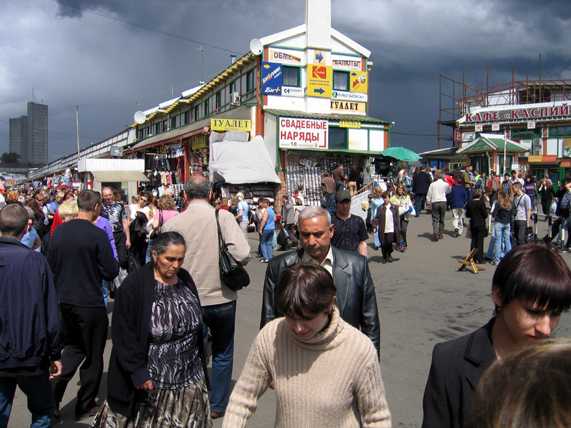_login
registrieren
_5 Factories - Worker Control in Venezuela Dario Azzellini & Oliver Ressler
_ALMOSTREAL ECF
_AnArchitektur Jesko Fezer
_Arizona Road Azra Aksamija
_Balkan Konsulat rotor
_Bata-ville: We are not afraid of the future Nina Pope + Karen Guthrie / www.somewhere.org.uk
_Black Benz Race krcf in collaboration with Felix Stalder, Arben Gecaj, Faton Topalli and Osman Osmani
_Black Sea Files Ursula Biemann
_Camp La Jolla Military ParkOwen Mundy
_CHANGE REALITY: Renaming the Streets of Zagreb REINIGUNGSGESELLSCHAFT
_Conceptual Paradise. There is a place for sophistication Stefan Roemer
_de-regulation Irit Rogoff, Kutlug Ataman, Stefan Roemer

____________Bloomberg SPACE, London
____________Kumu Art Museum Tallinn
____________Open Space, Open Systems - Vienna
____________CAA 2011 Conference, New York
____________Forum Stadtpark, Graz
____________Symposium, Istanbul
____________lungomare, Bozen/Bolzano
____________Metropolis Biennale 2007-17, Copenhagen
____________new publication available now
____________Mestna Galerija, Ljubljana
____________Livestream of Networked Cultures documentary
____________
|
_about
 Networked Cultures investigates the cultural transformations under way in Europe through examining the potentials and effects of networked spatial practices. Based at Goldsmiths, University of London, the project collaborates with art, architectural and urban practices across Europe and beyond to look at ways in which contested spaces allow for a multi- inhabitation of territories and narratives across cultural, social or geographic boundaries. Sites of alternative urban engagement are collected on a database and will be presented in a variety of formats, including exhibitions, films and books Networked Cultures investigates the cultural transformations under way in Europe through examining the potentials and effects of networked spatial practices. Based at Goldsmiths, University of London, the project collaborates with art, architectural and urban practices across Europe and beyond to look at ways in which contested spaces allow for a multi- inhabitation of territories and narratives across cultural, social or geographic boundaries. Sites of alternative urban engagement are collected on a database and will be presented in a variety of formats, including exhibitions, films and books
Whether put into effect by transnational politics or global economies, new technologies or urban social movements, networks have become the defining characteristics of twenty-first-century social and spatial organisation. They have widely changed our cultural forms of cohabitation and communication over recent years. They have also changed the ways we produce and experience the spaces we live in: Cities, regions and larger entities of spatial cohesion are no longer fixed territories, but emerge as highly contested and instable topologies. They are performed and constituted by networks of interacting realities.
Departing from sites of geopolitical conflicts and social confrontations, the Networked Cultures project, based at Goldsmiths College London, aims to reconsider the cultural transformations under way in Europe through examining the potentials and effects of networked spatial practices. The project, in particular, investigates art, architectural and urban practices located in contested spaces whose work allows for a multi-inhabitation of territories and narratives across cultural, social or geographic boundaries. In doing so, the project seeks to extend current debates of architectural and spatial planning by addressing the emergence of new forms of urban engagement, by re-evaluating the relationship between space and conflict and by establishing trajectories of an architectural culture geared towards network formation.
The research employs a variety of strands along which the project itself can develop within networks of exchanges and interventions.
First, we look at contested spaces across Europe by following the routes of networks laid out by artists, architects, urbanists, curators and activists, gathering material, sharing ideas, filming and interviewing people along these journeys. For this, we have identified an initial set of ‘field studies’, which will expand along the progress of the research. Second, we invite groups, practices or initiatives to share information about their work on our website’s database, which offers a growing archive of urban interventions, public art projects and architectural experiments. In these ways, the research is open to contributions by interlocutors from various disciplines and backgrounds, who will take part in shaping the project.
Interaction networks and transient aggregations of spatial practices do not only form important sites for critical urban engagement, they are also sites of knowledge production. Networked Cultures seeks to conceptualise the knowledge embodied by these new forms of socio-spatial organisation and group action and will explore the ways in which they offer new perspectives for dealing with contested spaces. In particular, it will investigate how the examined spatial practices can reduce our dependence on fixed and separated knowledge, while giving us the tools to develop new knowledge together. The development of a set of practice led frameworks around architectural and cultural networks will contribute to enhance an understanding of how the architecture of space is malleable and can be transformed by those who are actors in a space of relationships.
In accordance with the particular character of the project, public communication and presentation form an essential part of it. As the Networked Cultures database grows, more and more information will be available online in the run of the project. Intermediate outcomes of the research are distributed via conferences, workshops, exhibitions and publications. Audio-visual reports and other components of the project will be presented in various exhibitions.
In 2008 the results of the research have been published in:
Networked Cultures: Parallel Architectures and the Politics of Space
NAi Publishers, Rotterdam
 Throughout 2008 and 2009 Networked Cultures has connected locations across the globe in a series of public events, the Networked Cultures Dialogues, curated by Peter Moertenboeck and Helge Mooshammer. Throughout 2008 and 2009 Networked Cultures has connected locations across the globe in a series of public events, the Networked Cultures Dialogues, curated by Peter Moertenboeck and Helge Mooshammer.
Building on the network logic of the Networked Cultures project, the series of Networked Cultures Dialogues offers a range of settings to bring the project contributors together with a multitude of local actors. Events include the launch of a comprehensive publication and film archive, as well as exhibitions, video installations and live discussions. These platforms for public debate follow four thematic strands: Network Creativity, Contested Spaces, Trading Places, Parallel Worlds.
Live contributions by Asu Aksoy, Lucia Babina, Gulsen Bal, Jochen Becker, Adrian Blackwell, Eric Cazdyn, Sudeep Dasgupta, Igor Dobricic, Nikolett Eroess, Asya Filippova, Iacopo Gallico, Emiliano Gandolfi, Cordula Gdaniec, Joseph Grima, Gita Hashemi, Guven Icirlioglu, Luis Jacob, Catherine Karl, Erden Kosova, Marc Neelen, Poka-Yio, Irit Rogoff, Despoina Sevasti, Christine Shaw, Samu Szemerei, Hakan Topal, Srdjan J. Weiss, Franciska Zolyom, and many others.
For detailed information please refer to the _news section.
|
+ Ana Dzokic and Marc Neelen
+ Ayreen Anastas and Rene Gabri
+ atelier d'architecture autogérée (aaa)
+ Asya Filippova
+ Sophie Hope and Sarah Carrington
+ Branca Curcic
+ Christoph Schaefer
+ Campement Urbain
+ Claudia Zanfi
+ Despoina Sevasti and Poka-Yio
+ Erden Kosova
+ Helmut Batista
Radio as Spatial Practiceby: Paulo Tavares
Survival Kits: Artistic Responses to Globalizationby: Marga van Mechelen
What Ever Happened to Cultural Democracy?by: Sophie Hope
I don't know how to explain ...by: Anca Gyemant
Trading Placesby: Peter Moertenboeck & Helge Mooshammer
Milosevic as Architectby: Srdjan Jovanovic Weiss
When the Unavoidable Knocks at the Door ...by: Gulsen Bal
Tracing Translocality: The BlackBenz Raceby: Felix Stalder
travelling lexicon towards a global positioning systemby: Celine Condorelli
|

 Throughout 2008 and 2009 Networked Cultures has connected locations across the globe in a series of public events, the Networked Cultures Dialogues, curated by Peter Moertenboeck and Helge Mooshammer.
Throughout 2008 and 2009 Networked Cultures has connected locations across the globe in a series of public events, the Networked Cultures Dialogues, curated by Peter Moertenboeck and Helge Mooshammer. Networked Cultures investigates the cultural transformations under way in Europe through examining the potentials and effects of networked spatial practices. Based at Goldsmiths, University of London, the project collaborates with art, architectural and urban practices across Europe and beyond to look at ways in which contested spaces allow for a multi- inhabitation of territories and narratives across cultural, social or geographic boundaries. Sites of alternative urban engagement are collected on a database and will be presented in a variety of formats, including exhibitions, films and books
Networked Cultures investigates the cultural transformations under way in Europe through examining the potentials and effects of networked spatial practices. Based at Goldsmiths, University of London, the project collaborates with art, architectural and urban practices across Europe and beyond to look at ways in which contested spaces allow for a multi- inhabitation of territories and narratives across cultural, social or geographic boundaries. Sites of alternative urban engagement are collected on a database and will be presented in a variety of formats, including exhibitions, films and books